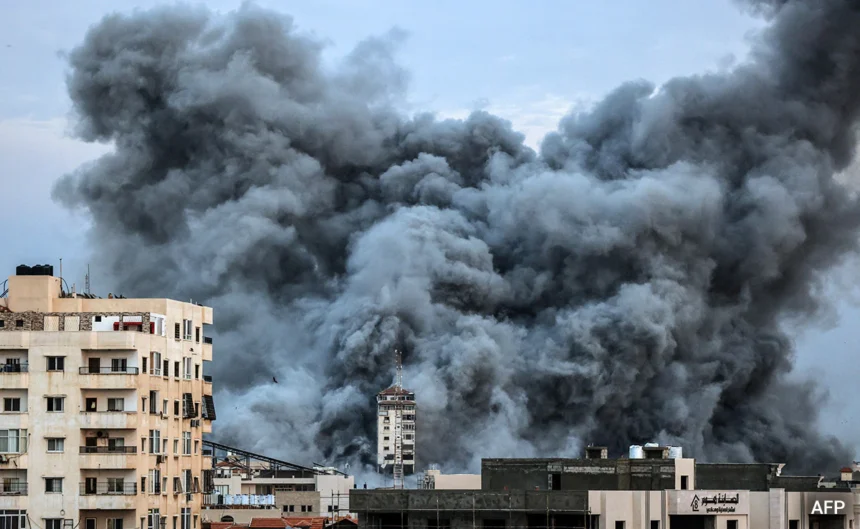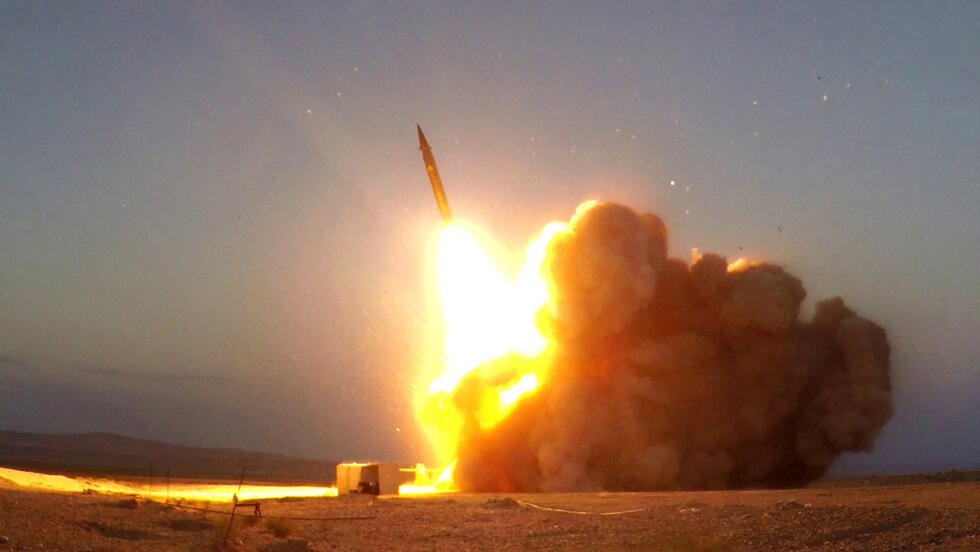Introduction
In a recent escalation of tensions in the Middle East, Iran Strikes Israeli Revolutionary Guards launched missile attacks on multiple targets in Syria and Iraq’s Kurdistan region. The strikes were described as a response to recent terrorist activities that resulted in the loss of Iranian lives in Kerman and Rask.
Targets and Destruction:
The official statement from the Islamic Revolutionary Guard Corps (IRGC) revealed that the attacks successfully destroyed a “spy headquarters” and a “gathering of anti-Iranian terrorist groups” in Arbil. The capital of Iraqi Kurdistan. Simultaneously. Ballistic missiles targeted locations in Syria. Focusing on the “gathering places of commanders and main elements related to recent terrorist operations, particularly the Islamic State group.”
🇮🇶BREAKING: IRANIAN BALLISTIC MISSILES STRIKE NEAR U.S. CONSULATE IN IRAQ
Iran claims responsibility for the barrage of missiles near the U.S. Consulate in Erbil, Iraq, citing retaliation for an Israeli strike in Syria.
The attack reportedly involved Fateh-110 ballistic… https://t.co/xIRTO7TKGg pic.twitter.com/FUUxtoTEUe
— Mario Nawfal (@MarioNawfal) January 15, 2024
US Response:
The attacks, however, have drawn strong condemnation from the United States, which labeled them as “reckless” and expressed concern about their potential to undermine Iraq’s stability. US State Department spokesperson Matthew Miller stated, “The United States strongly condemns Iran’s attacks in Erbil today and offers condolences to the families of those who were killed. We oppose Iran’s reckless missile strikes, which undermine Iraq’s stability.”
Syrian Impact:
The situation unfolded with explosions heard in Aleppo and its countryside, indicating that at least four missiles, originating from the Mediterranean Sea direction, had struck the area, according to the Syrian Observatory for Human Rights. This recent military action comes against the backdrop of a suicide bombing incident near the tomb of the revered IRGC general Qasem Soleimani in Kerman on January 3, which claimed around 90 lives and was later claimed by the Islamic State.
Background Incidents:
The IRGC justified the strikes. Stating that they were a response to the recent crimes committed by terrorist groups that unjustly martyred a group of Iranians in Kerman and Rask. These attacks also targeted alleged Israeli “spy headquarters” in Iraq’s Kurdistan region. With the IRGC accusing Israel’s Mossad spy agency of developing espionage operations and planning terrorist actions in the region.
Israeli Connection:
In Erbil, the capital of Iraqi Kurdistan, the strikes resulted in four civilians killed and six others wounded, according to Iraq’s Kurdistan security council. Among the casualties was prominent businessman Peshraw Dizayee, known for his real estate projects in Kurdistan. The attack has been condemned by the Kurdistan government’s security council, describing it as a “crime.”
Casualties and Condemnation:
The United States has been quick to respond to the situation. Expressing concern over the impact of the missile strikes on Iraq’s stability. While condemning Iran’s actions. The US emphasized its support for the Iraqi government and the Kurdistan Regional Government’s efforts to meet the aspirations of the Iraqi people.
US-Iran Relationship:
This recent development marks a concerning escalation of tensions in the already volatile Middle East. With the US-Iran relationship strained and the ongoing conflict between Israel and Palestinian group Hamas drawing in Iran Strikes Israeli-backed armed groups in Lebanon. Iraq. Syria. And Yemen.
Regional Implications:
The broader regional tensions have been exacerbated by recent events. Including the war between Israel and Hamas. Creating a complex web of geopolitical challenges. The strikes in Erbil add to the existing concerns, as the region navigates through multiple conflicts and power dynamics.
Diplomatic Fallout:
The missile Iran Strikes Israeli “spy headquarters” in Iraq’s Kurdistan region further underscore the broader regional implications of the ongoing conflicts. The IRGC’s accusations against Israel’s Mossad spy agency add a layer of complexity to an already intricate geopolitical landscape.
Conclusion:
While the specific details of the recent strikes are still emerging. The international community closely watches the situation unfold. Wary of the potential consequences on regional stability. As the diplomatic fallout continues. The Middle East remains a focal point for global geopolitical dynamics. With the actions of key players shaping the trajectory of the region.






